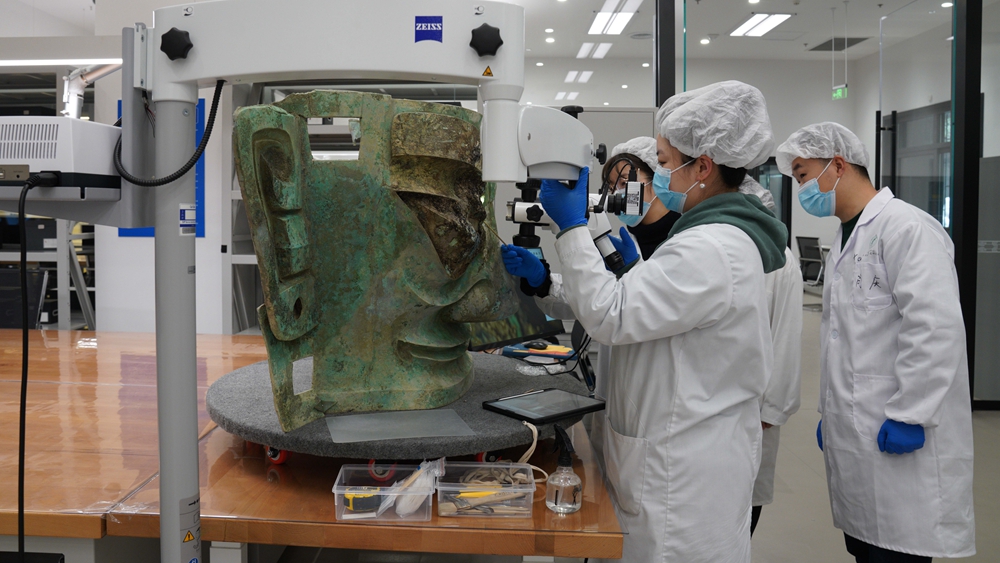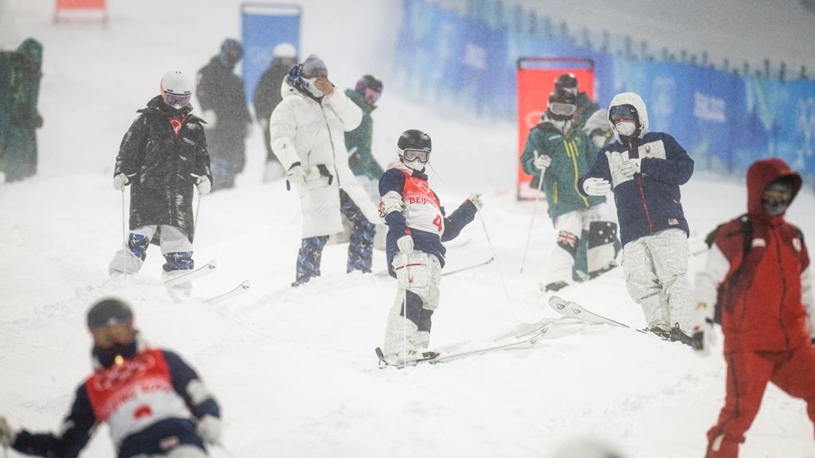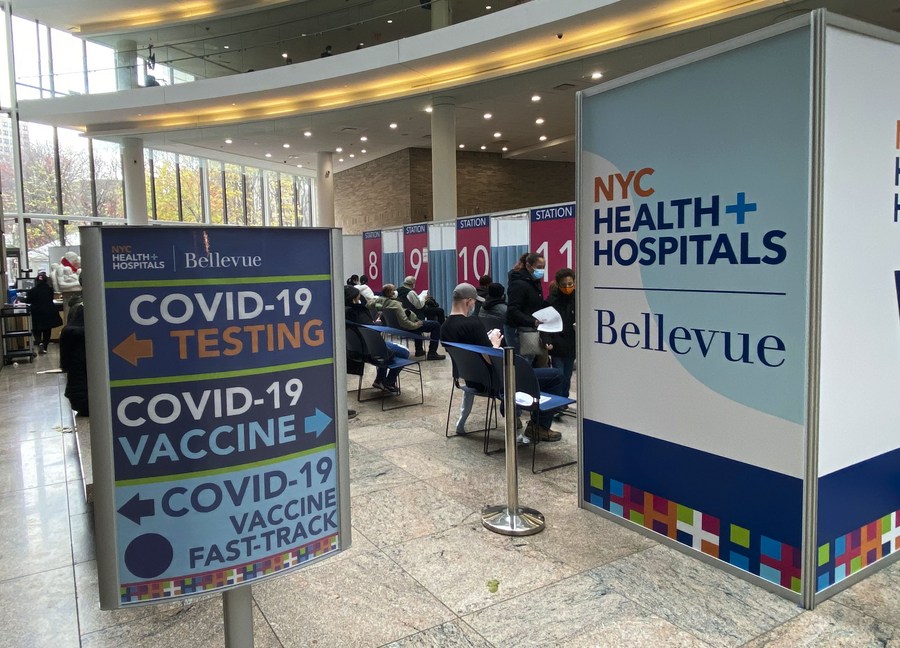
People are seen at a COVID-19 vaccination site in New York, the United States, Dec. 2, 2021. (Xinhua/Wang Ying)
FDA acting commissioner Janet Woodcock said that the full approval for Moderna is a "significant step" in getting more Americans vaccinated and ending the COVID-19 pandemic.
WASHINGTON, Feb. 2 (Xinhua) -- The United States has taken enhanced efforts to boost confidence from the public in vaccinating COVID-19 shots against the surge of new infections driven by the highly transmissible Omicron variant.
The U.S. Food and Drug Administration (FDA) granted full approval to Moderna's COVID-19 vaccine on Monday, for use in people ages 18 and older.
The vaccine, named Spikevax, joins Pfizer-BioNTech's formulation as the two fully-approved COVID-19 vaccines in the United States.
The full approval suggests that Spikevax meets the FDA's rigorous standards for safety, effectiveness and manufacturing quality.
FDA acting commissioner Janet Woodcock said that the full approval for Moderna is a "significant step" in getting more Americans vaccinated and ending the COVID-19 pandemic.
"While millions of people have already safely received COVID-19 vaccines, we recognize that for some, the FDA approval of a vaccine may now instill additional confidence to get vaccinated," she said.
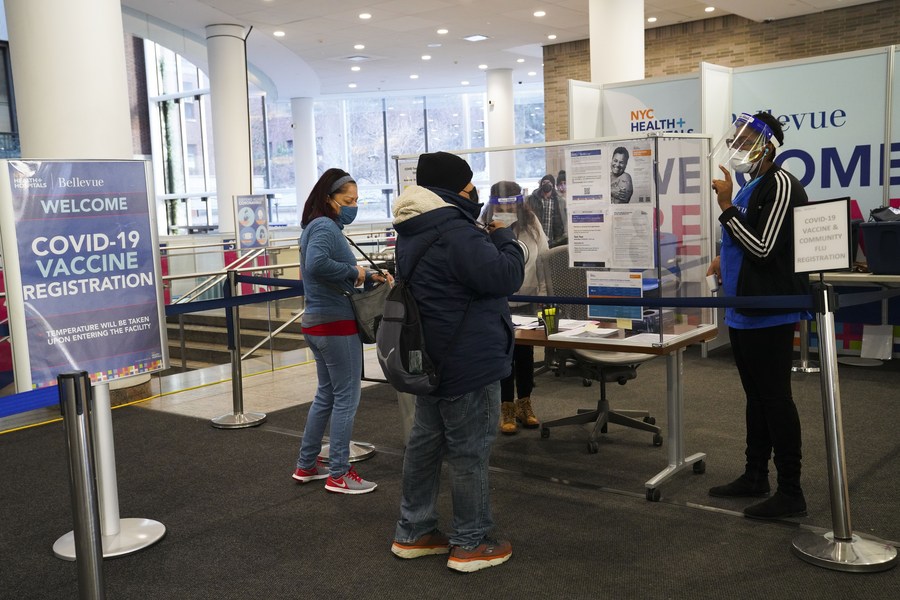
People register to receive COVID-19 vaccine at a hospital in New York, the United States, Dec. 13, 2021. (Xinhua/Wang Ying)
Moderna's COVID-19 vaccine has been available under the FDA's emergency use authorization (EUA) for individuals 18 years of age and older since Dec. 18, 2020.
Pfizer's COVID-19 vaccine, Comirnaty, was fully approved for use in people ages 16 and older in August 2021.
On the same day when the FDA fully approved Moderna's vaccine, American biotechnology company Novavax announced it has formally submitted a request for the FDA's EUA for its COVID-19 vaccine candidate.
Novavax's protein-based COVID-19 vaccine, named NVX-CoV2373, is intended for immunization of individuals 18 years of age and older against SARS-CoV-2.
Novavax conducted two pivotal Phase 3 clinical trials, one involving approximately 30,000 participants in the United States and Mexico, and another one with almost 15,000 participants in Britain.
In both trials, the vaccine demonstrated efficacy with a "reassuring safety profile", with severe adverse events low in number and balanced between vaccine and placebo groups, according to the company.
Meanwhile, kids as young as 6 months old may be able to get a COVID-19 vaccine in the United States within a few weeks, as the FDA has scheduled an advisors' meeting in mid-February to discuss the request for EUA of the Pfizer-BioNTech COVID-19 vaccine for use in children 6 months through 4 years of age.
Pfizer and BioNTech have initiated a rolling submission seeking to amend the EUA of its COVID-19 vaccine to include children 6 months through 4 years of age.
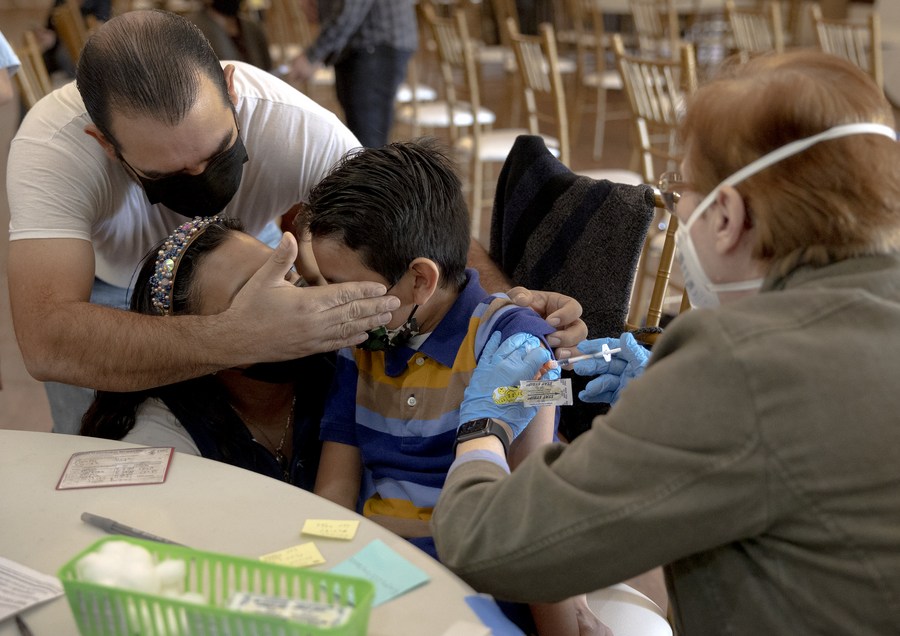
Parents comfort their son as the boy receives a dose of COVID-19 vaccine at a vaccine clinic in San Antonio, Texas, the United States, Jan. 9, 2022. (Photo by Nick Wagner/Xinhua)
Kids under 5 years old are the last age group left that is not eligible for vaccination in the United States.
Parents are anxiously awaiting the vaccine for younger children as the Omicron variant sweeps across the nation, causing record-high infections among younger ones.
Over 3.5 million child COVID-19 cases were reported in the United States in January, as child cases have "spiked dramatically" during the Omicron variant surge, according to the latest report of the American Academy of Pediatrics and the Children's Hospital Association.
Although children are at much lower risk of developing severe illness from COVID-19 compared to adults, their hospitalizations have increased during the recent surge of infections. Health experts are concerned about the long-lasting impacts on the kids' physical, mental, and social well-being. ■

